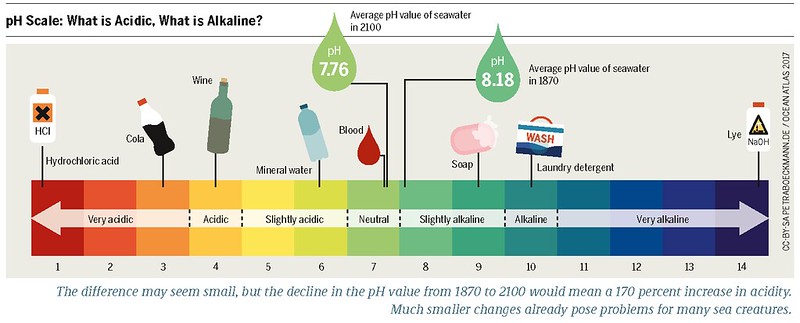The pH value of KBr (potassium bromide) in water is typically neutral, ranging from 6.5 to 7.5. This is because KBr is a salt formed by the reaction of a strong base (KOH) and a strong acid (HBr), resulting in a neutral solution with no significant impact on the pH of water.
Understanding the Dissociation of KBr in Water
When KBr dissolves in water, it dissociates into potassium ions (K+) and bromide ions (Br-). Neither of these ions has a significant effect on the pH of the solution. Potassium (K+) is a weak Lewis acid, and bromide (Br-) is the conjugate base of a strong acid (HBr), making it a weak base. The interaction between these ions and water molecules is not strong enough to change the structure of the water molecule or affect its pH.
| Ion | Strength |
|---|---|
| Potassium (K+) | Weak Lewis Acid |
| Bromide (Br-) | Weak Base |
Factors Affecting the pH of KBr Solutions
Contaminants or chemicals that may be present in KBr solutions can include impurities from the manufacturing process, residual acids or bases, and dissolved gases. To maintain the neutral pH of KBr solutions, it is essential to use high-purity KBr and ensure proper storage and handling to minimize exposure to air and other contaminants. Regular testing and monitoring of the KBr solution can help identify and address any pH changes or contamination issues.
Dealing with Contaminants and pH Adjustments
In some cases, adjusting the pH of a KBr solution may be necessary. This can be achieved using acid or base solutions, depending on whether the pH needs to be lowered or raised. For example, adding a strong acid like hydrochloric acid (HCl) can lower the pH, while adding a strong base like sodium hydroxide (NaOH) can raise the pH. However, it is crucial to monitor the pH carefully and avoid over-adjustment, as significant deviations from the neutral range can impact the stability and effectiveness of the KBr solution.
Natural Alternatives for pH Adjustment
For DIY users looking for home remedies or alternatives to adjust the pH of a KBr solution, natural substances like lemon juice (citric acid) or baking soda (sodium bicarbonate) can be used. However, these substances should be used carefully and in moderation, as they can also affect the overall composition and properties of the solution.
Conclusion
In summary, the pH of KBr in water is typically neutral, ranging from 6.5 to 7.5. This is due to the neutral nature of the KBr salt, which is formed by the reaction of a strong base and a strong acid. Maintaining the purity of the KBr solution and addressing any contaminants or pH deviations is crucial to ensure the stability and effectiveness of the solution. While natural alternatives can be used for pH adjustments, it is essential to exercise caution and monitor the changes carefully.

